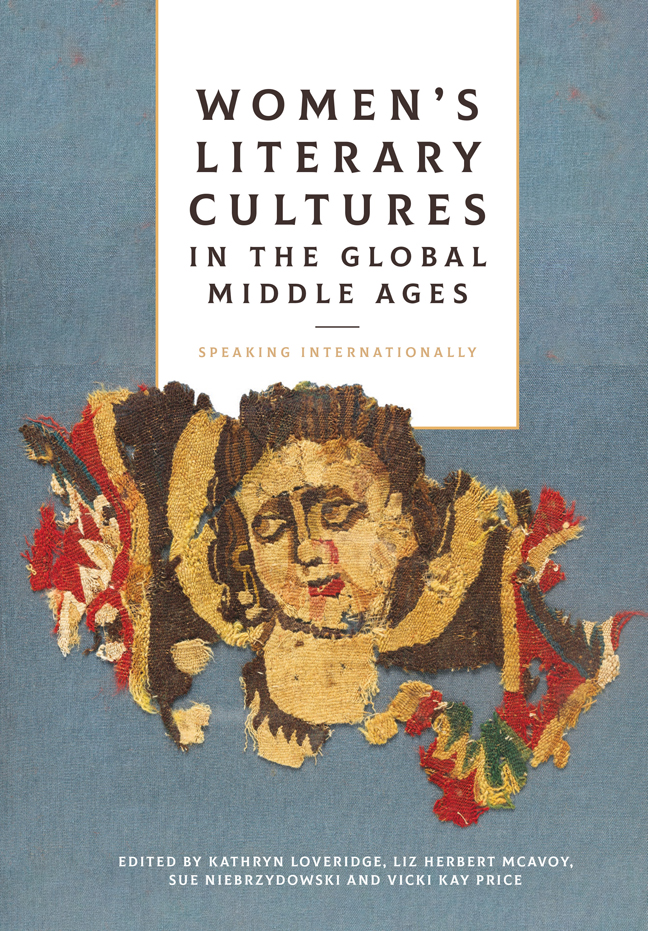Book contents
- Frontmatter
- Contents
- Foreword
- Acknowledgements
- List of Abbreviations
- Book part
- 1 Comparison and Dialogue
- 2 Constructing Gender and Genre
- 3 Saintly Performance and Marian Piety
- 4 Evidence and the Archives: Revisiting and Reconsidering
- Afterword: Intersectionality and Coalitions
- List of Contributors
- Bibliography
- Index
- Gender in the Middle Ages
7 - Deception, Infanticide, and the Making of a Female Saint: A Look at the Gädl Krəstos Śämra
Published online by Cambridge University Press: 09 January 2024
- Frontmatter
- Contents
- Foreword
- Acknowledgements
- List of Abbreviations
- Book part
- 1 Comparison and Dialogue
- 2 Constructing Gender and Genre
- 3 Saintly Performance and Marian Piety
- 4 Evidence and the Archives: Revisiting and Reconsidering
- Afterword: Intersectionality and Coalitions
- List of Contributors
- Bibliography
- Index
- Gender in the Middle Ages
Summary
The Gädl Krəstos Śämra is an indigenous Ethiopian text dedicated to the acts of an indigenous female saint, Krəstos Śämra. It is believed to have been written in the latter half of the fifteenth century. This Gädl is not only an example of the little-studied Ethiopic hagiographic tradition, but also one of the few hagiographies dedicated to a female saint.
My brief look at this text here aims to examine the depiction of female sanctity within the Gädl Krəstos Śämra, to identify the processes by which the female person is transformed from a gendered subject – defined according to patriarchal ideals – to an ascetic holy woman cast according to the imagination of the male author. To this end, first I will offer a very brief introduction to the Ethiopic (Gəˁəz) hagiography tradition; second, I will broadly identify the mechanisms whereby common hagiographic tropes such as ascetic struggle, penitence and visionary experiences are ‘gendered’ in relation to the female saint; and, third, I will look at the relationship between Krəstos Śämra and the other (even more authoritative) female character in the Gädl – the Virgin Mary.
GƏˁƏZ HAGIOGRAPHY
The Gəˁəz language (also referred to as Classical Ethiopic or Ethiopic) is an ancient language originating in modern-day Tigray (northern Ethiopia) and Eritrea. The earliest writings in Gəˁəz are discovered in inscriptions and coins of the Axumite Empire from about the third century ce. Although no longer spoken after the Axumite period, Gəˁəz persisted as the language of written and formal communication, as well as being the liturgical language of the Ethiopian Orthodox Tewahədo Church (EOTC). The Gəˁəz literary tradition has attracted a significant amount of academic interest – mainly as a repository of a large number of early Jewish and Christian religious writings (canonical and non-canonical) translated from Greek, Syriac, Coptic and Arabic sources over 1500 years.
In comparison to these early texts, the hagiographic writings have received much less academic attention. This corpus includes a diverse range of texts (including Acts, Martyrdoms and Miracles), translated and composed over many centuries up to the present day. While the earliest extant witnesses to this tradition unfortunately only date back to the fourteenth century, research has demonstrated that the earliest examples were likely translated from Greek in the Axumite period.
- Type
- Chapter
- Information
- Women's Literary Cultures in the Global Middle AgesSpeaking Internationally, pp. 141 - 154Publisher: Boydell & BrewerPrint publication year: 2023



